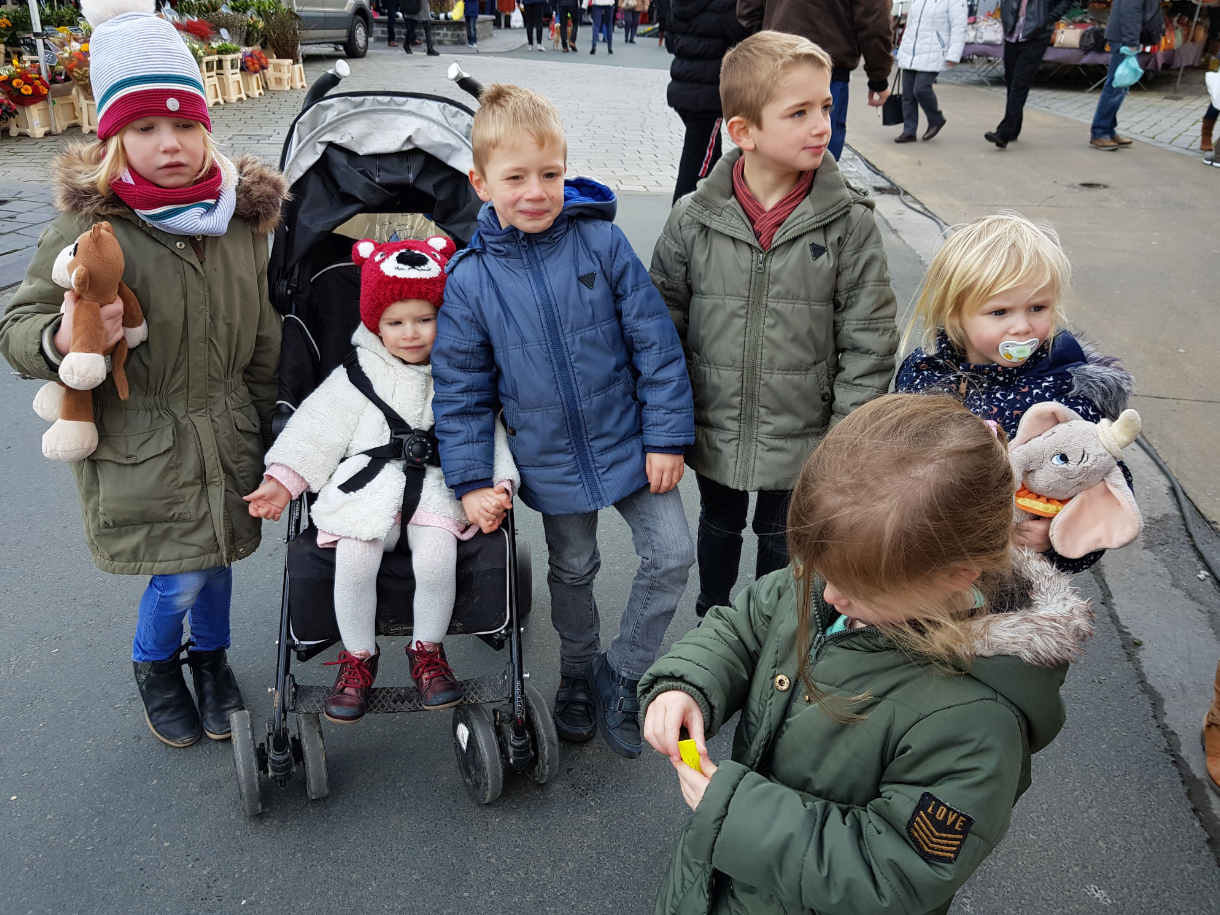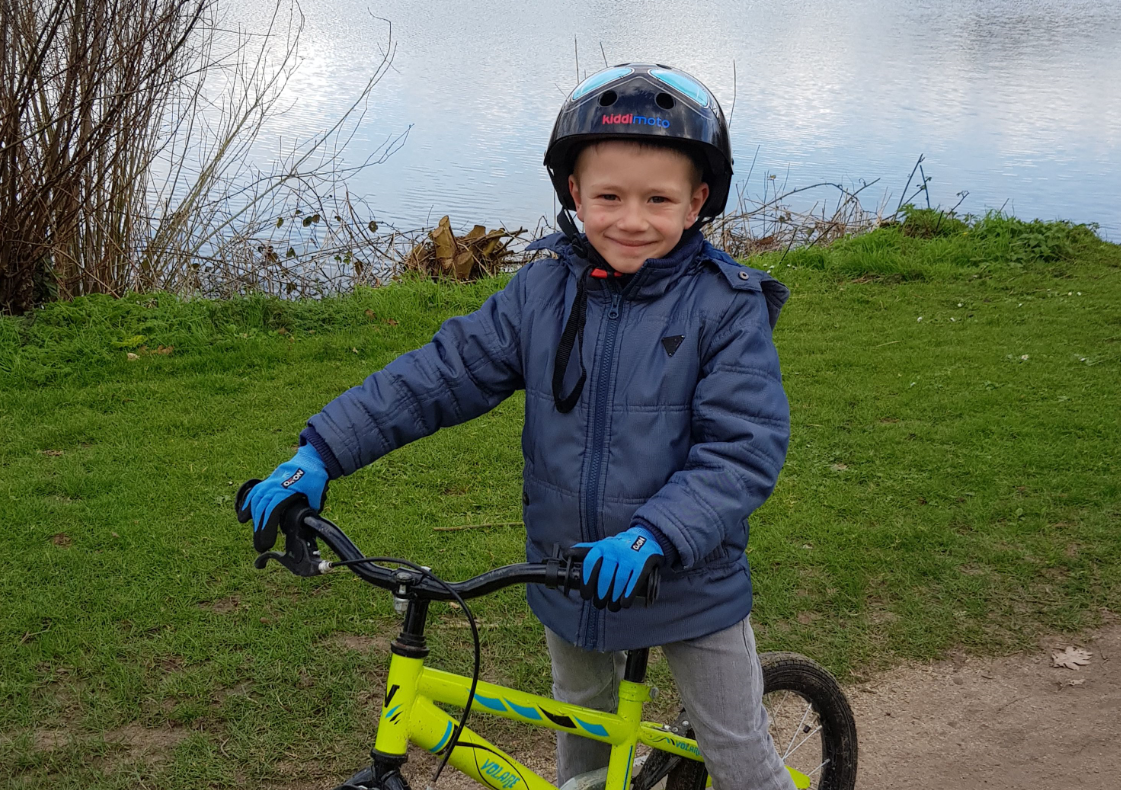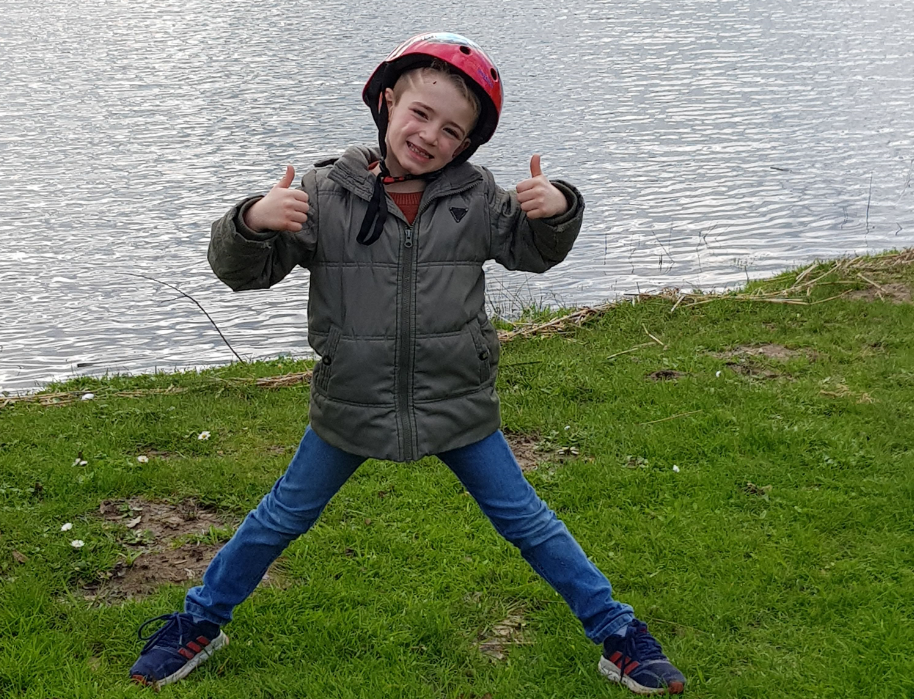During the coronavirus crisis, there are plenty of smart professionals at VUB. But working at VUB is now mainly working for VUB but from home. What’s the reality of the switch from workplace to homeworking? How do we deal with the blurring of boundaries between work and life?
Recognise these situations? We asked our VUB colleagues how they are getting on with the new reality of homeworking. With an eye on best practice, they shared their surprising tips and tricks. Click here to find all their stories.
Lieselot Van Kerkhove
Lieselotis the secretariat team leader in the faculty of Medicine and Pharmacy on Campus Jette. She lives with her partner, Timmy, and their two sons, Jasper, eight, and Pieter, six, in rural Pollare near Ninove. Her parents, grandparents, two sisters, aunts, uncles, nephews and nieces all live within a few kilometres. Each day she walks or cycles along the Dender with her family, always with a stop to see her parents or grandparents. It does her good, and helps them all feel refreshed.
Her homeworking base? Lieselot works from her well-appointed and enclosed home office: her ‘kot’. She begins her day’s work at 6.00 so she can finish in good time for the children, but will often continue working afterwards.
Continue the story below the picture.
Making the best of it
Lieselot’s partner is a roofer, who now stays home and looks after the children. Lieselot isn’t especially happy about working away from her team. “Physically working together means more interaction and fulfilment,” she says. “It’s difficult for a team to work from a distance, work is slower and produces less energy. I try to keep everyone on board with meaningful assignments.” The faculty’s workload is still heavy and there’s a lot of pressure. The result is lots of multitasking, longer days and shorter nights. The boundary between work and private life has shrunk, in part from the use of WhatsApp groups and Skype among colleagues. Everyone has to adjust and make the best of the situation.
A structured approach above all
Lieselot’s children are at an age where their lives are all about play. Jasper loves playing indoors and misses his schoolfriends most of all. Pieter prefers being at home to being at school, and likes to play outside. They both enjoy going out walking or cycling with Mum and Dad in the evening, and seeing their cousins or the local kids. Their father often takes them out with him. He spends the whole day looking after the children, including managing their schoolwork, and that’s not always easy.
I try to keep everyone on board with meaningful assignments.
Lieselot: “Before the coronavirus, we had a planning board in our living room that we stuck pictograms on, on the advice of a remedial educational expert. This visual memory support for planning and tracking daily activities gives our sons structure. Now the board looks a lot more monotonous. The after-school activities, where Jasper and Pieter could run off their energy, have sadly fallen by the wayside.”
Balance through self-care
How long the coronavirus lockdown and teleworking will last, we don’t know. So ordinary life must carry on, with the extraordinary added, and setting boundaries is more important than ever. Lieselot had a difficult birth, and a lack of oxygen means she now suffers from the effects of cerebral palsy. For years she has followed a strict physiotherapeutic treatment plan to keep the long-term impact under control. Now that physiotherapists can no longer practise, her situation requires extra attention to self-care.
Continue the story below the picture.
Lieselot: “Since childhood, I’ve learned to deal with my physical limitations and have had to build up enormous self-discipline, with the daily support of my parents and sisters. Now I no longer have the help of my specialist physio, I have to pay more attention to the possible hurdles. In the multitude of daily tasks, it’s not always easy, because fatigue also plays a part.”
Close family ties in times of coronavirus
Every day we hear about the threat of the virus locally and around the world. You hope and you wonder if your loved ones will be spared. Sometimes the virus seems a long way away, sometimes it feels closer to home. That’s when close social and family ties help you get through.
Lieselot: “I live in a rural village close to my family. That creates a positive social community, which now has its benefits. My 85-year-old grandmother is in a high-risk group and the isolation has caused loneliness and worry. Her once open home has become more sealed off to family and carers because of these exceptional measures. It’s now about a simpler life, and surviving. Our close family ties are softening the blow of this difficult situation for our matriarch and for us.”
We had a planning board in our living room that we stuck pictograms on. This visual memory support for planning and tracking daily activities gives our sons structure.
Child-friendly arrangements
Lieselot and her family have made good arrangements to create a normal daily life. There are clear rules now that Jasper has started to play digital games: he is allowed one hour a day to play on the Switch, a child-friendly console. Via an app, his parents can set up and track that time limit. This encourages Jasper to understand how he can use his Switch time most effectively.
Lieselot: “We work out with him when and how much time he wants to spend on a game at a given time. He often suggests doing a couple of hours of homework first, then as a reward he can spend a whole hour relaxing and enjoy it properly. This is working relatively well for an eight-year-old!”
Lees verder onder de foto.
Lieselot’s tips
- Count on your family
“My family support me through thick and thin. Laughing, having fun, drying tears, comforting words. I can share everything with them. It’s moving now to see the children saying ‘Grandma, Grandad, I will be so happy when I can give you a hug again and see you after school. We miss you.’ It’s hard on your own, but together we can get through so much.”
- Make child-friendly agreements
“It’s important to explain clearly to my sons that Mum is still working, only from home. At the end of each day – as a sort of reward – we go walking or cycling together in the countryside, with a stop to see their grandparents and great-grandmother from a distance.”
- Build in enough self-care
“A structured day, including enough movement and self-care, will be necessary in the coming months. And having patience with each other to get through it together.”
Continue the story below the picture.
Lieselot’s reflections
- “It’s remarkable how many people now greet you if you pass them in the village, when before we passed each other by.”
- “Homeworking is a balancing act that requires boundaries. Work pressure remains high and work is always within reach, which calls for more attention to work-life balance. The commute as a gradual transition between work and home has gone, so there needs to be a new, clear end point to the working day."
-
JOIN IN the VUB research. The research group TOR at Vrije Universiteit Brussel and the research bureau hbits are investigating the social consequences of the coronavirus crisis. We’re working in a different way, schools and most shops are closed and public life has ground to a halt. What are the consequences of this for your daily life? Take part in the research and tell us how your daily life has changed via www.dagelijksleven.eu
Read also the article of professor Ignace Glorieux: Life in a time with no fixed times.



